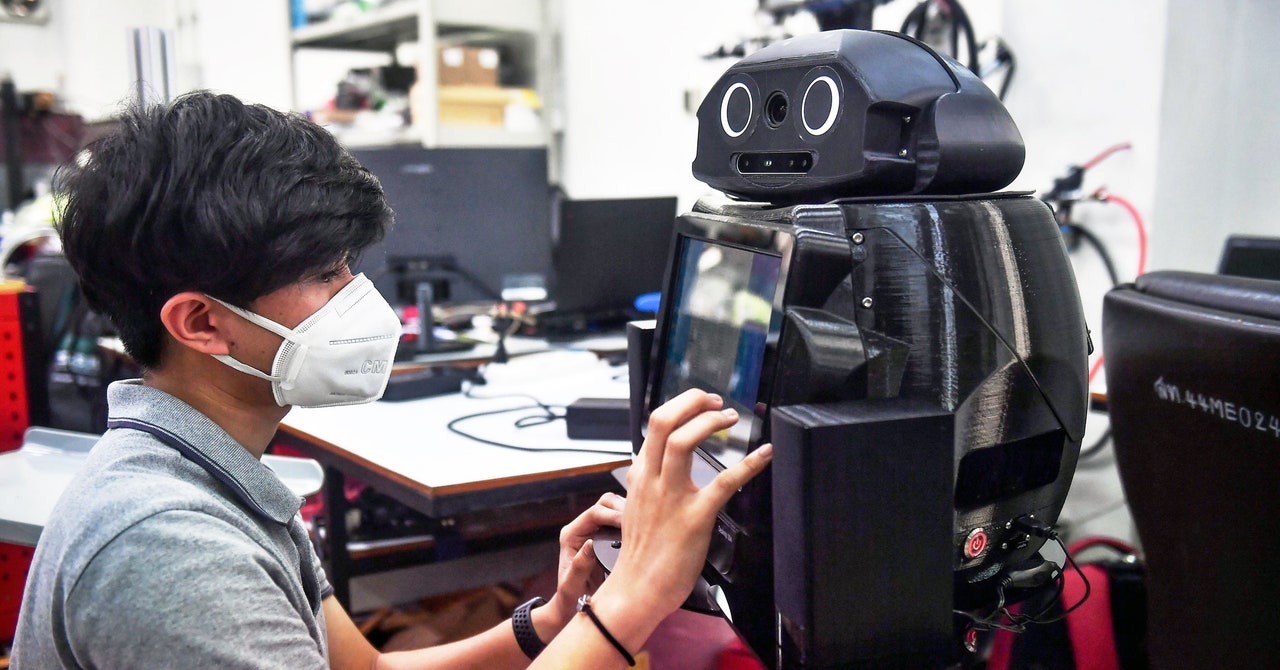We humans weren’t ready for the novel coronavirus—and neither were the machines. The pandemic has come at an awkward time, technologically speaking. Ever more sophisticated robots and AI are augmenting human workers, rather than replacing them entirely. While it would be nice if we could protect doctors and nurses by turning more tasks over to robots, medicine is particularly hard to automate. It’s fundamentally human, requiring fine motor skills, compassion, and quick life-and-death decisionmaking we wouldn’t want to leave to machines.
But this pandemic is a unique opportunity to jump-start the development of medical robot technologies, argue a dozen roboticists in an editorial out today in the journal Science Robotics.
Perhaps “people start to reflect that for situations such as this, how robots can be used not only to help with social distancing, but also for increasing social interaction,” said Guang-Zhong Yang, founding editor of the journal, during a press conference.
The editorial serves as a call to arms for more research. “Robotics and automation could play a major role in combating infectious diseases, such as Covid-19,” Yang and his fellow editors wrote in their piece. In particular, they argued: “Robots have the potential to be deployed for disinfection, delivering medications and food, measuring vital signs, and assisting border controls. As epidemics escalate, the potential roles of robotics are becoming increasingly clear.”
Read all of our coronavirus coverage here.
Additionally, robots could enable a form of telemedicine that would keep humans out of areas of contagion. “Covid-19 could be a catalyst for developing robotic systems t

